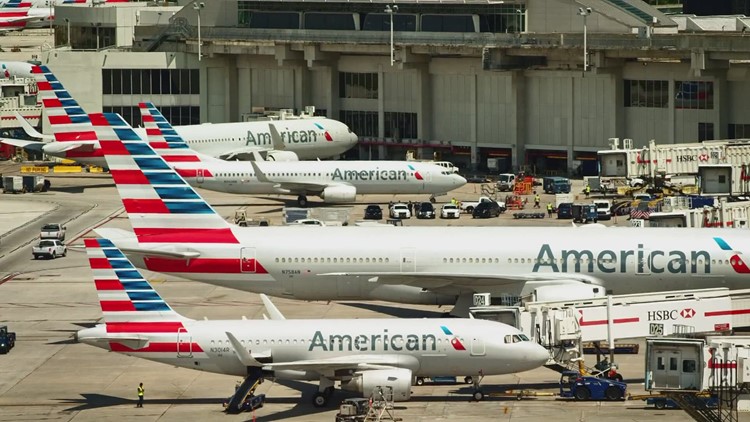DALLAS — An American Airlines jetliner that suffered an “anomaly” in the braking system before running past the end of a runway in Texas last month had undergone a brake-replacement job four days earlier, U.S. investigators said Thursday.
An inspection showed that flexible hydraulic lines to parts of the braking system on the Boeing 737 had been improperly reconnected, the National Transportation Safety Board said in a preliminary report on the Feb. 10 incident at Dallas-Fort Worth International Airport.
American said in a statement that it is cooperating with investigators and safety is the airline’s top priority.
The NTSB said that within moments of the plane touching down on the runway, the automatic brakes went from off to on and then off again. The pilots used brake pedals and thrust reversers to slow down, but as the plane neared the end of the runway, the captain of American flight 1632 warned air traffic controllers.
“Total brake failure. We are departing the end of runway 17L (for left). Roll crash fire rescue,” the captain said.
The plane came to rest on a paved area beyond the runway. The 104 passengers and crew members were bused to the terminal.
The NTSB said that four days before the runway incident, American replaced steel brakes on the main landing gears with carbon brakes and wheel assemblies, based on 2016 instructions from Boeing.
The work required disconnecting flexible hydraulic hoses and reconnecting them. An inspection following the event on the Dallas runway showed that two of the lines “had been improperly reconnected” after the brake job, according to the preliminary report.
Wiring to one of the main landing gears also had been installed incorrectly, the NTSB said.
The safety board said its investigation was continuing.
The plane was built in 2009. It is an earlier version of the Boeing 737 than the Max.
Other headlines:



